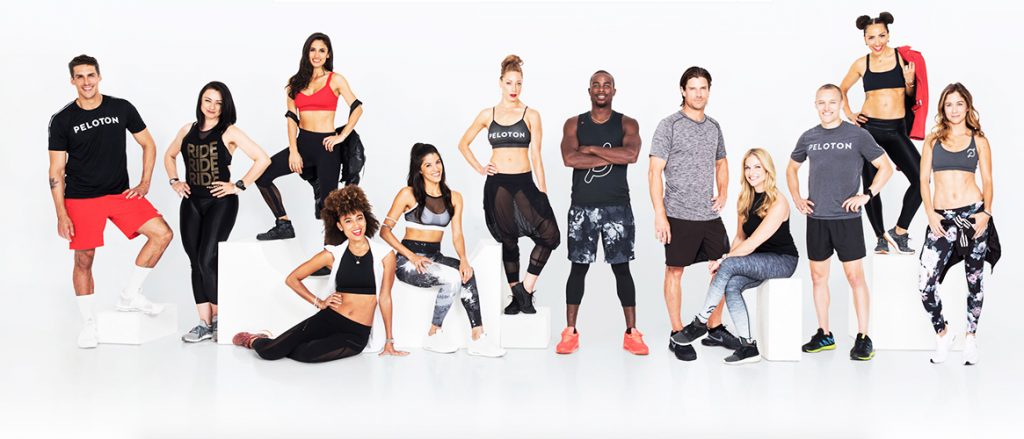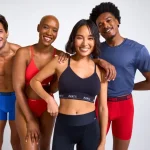By Eric Smith
<span style="color: #a6a4a4;">The chaos that coronavirus is causing across the active lifestyle marketplace is unprecedented. Supply chains are snarled. Ski resorts closed at least a month early. And dozens of retailers have gone dark for two weeks or longer to prevent further spread of the pandemic.
While many (nay, most) businesses are suffering, a couple of categories in this space stand to benefit—firearms and at-home fitness manufacturers—although it’s hard to claim any “winners” when an outbreak such as Covid-19 is wreaking so much havoc on everyday life. And even these sectors are dealing with supply chain and sales channel issues.
First, however, a quick update on what’s happened this week.
…
The last few days have seen a flurry of announcements about store closures or retailers’ reductions in hours.
The following companies said they were closing their brick & mortar locations in response to the coronavirus—Adidas, Skechers, Gap, Journeys, Deckers brands (Ugg and Sanuk), Macy’s, Prana, Canada Goose, Crocs, Foot Locker, L.L. Bean, Merrell, PVH brands, Stio, Under Armour, Columbia, Evo, VF Corp. brands (including Vans, The North Face, Timberland and Smartwool), REI, Patagonia, Lululemon and Nike.
Other stores, including Dick’s Sporting Goods and Walmart, have reduced hours of operations and/or closed some locations in response to the coronavirus.
Looking at the situation globally, nearly 75 percent of companies report supply chain disruptions in some capacity due to coronavirus-related transportation restrictions, and more than 80 percent believe that their organization will experience some impact because of Covid-19 disruptions, according to a survey from the Institute for Supply Management (ISM).
Of those, one in six (16 percent) companies report adjusting revenue targets downward an average of 5.6 percent due to the coronavirus.
“The story the data tells is that companies are faced with a lengthy recovery to normal operations in the wake of the virus outbreak,” said Thomas W. Derry, CEO of ISM. “For a majority of U.S. businesses, lead times have doubled, and that shortage is compounded by the shortage of air and ocean freight options to move product to the United States—even if they can get orders filled.”
…
It’s not just the retail operations that are being affected. On Wednesday, the National Park Service said it is modifying operations until further notice for facilities and programs that cannot adhere to the latest guidance from the White House, Centers for Disease Control & Prevention (CDC), and local and state authorities to promote social distancing.
“The health and safety of our visitors, employees, volunteers, and partners is the priority of the National Park Service,” said Secretary of the Interior David Bernhardt. “Park superintendents are empowered to modify their operations, including closing facilities and canceling programs, to address the spread of the coronavirus.”
Also, Vail Resorts Inc. updated its previously announced decision to close all North American ski resorts for a week and will now close those resorts for the rest of the season. The company said it will consider reopening Breckenridge Ski Resort in Colorado, Heavenly Mountain Resort in Lake Tahoe and Whistler Blackcomb in British Columbia in late April/early May, dependent on the coronavirus spread as well as weather conditions.
“Our decision to end the season now is evidence of the fast-moving situation involving Covid-19, and it was not an easy one to make as we deeply considered the extended impact it will have on our guests, employees and communities,” said Rob Katz, chairman and CEO of Vail Resorts. “While it is incredibly disappointing for our company to mark the end of the season so early, we know it is the most responsible path forward.”
Other ski resort owners—including Powdr, Alterra Mountain Co. and Aspen Skiing Co.—could be making similar announcements as their weeklong suspension of operations wind down.
…
Despite the widespread disruption to business and everyday life that’s sure to last for months, if not longer, some sections of the economy have seen positive developments over recent weeks—and not just grocery stores, food delivery providers and streaming services.
Firearms and ammunition manufacturers, which have endured the “Trump Slump” for three years, are raking it in thanks to citizens’ concerns over the pandemic. (Another driver for increased gun sales could be the November election and the prospect of a president-elect who favors gun control measures, though it’s perhaps too early to credit this one yet).
Earlier this month, the FBI said it completed 2.8 million gun background checks in February, up 36 percent from February 2018 and the third-highest monthly total since the National Instant Criminal Background Check System (NICS) began in 1998.
That’s an impressive total against some strong comps. February’s total surpassed January’s mark of 2.7 million background checks and is topped only by December 2015 and December 2019 with 3.3 million and 2.9 million background checks, respectively.
The surge to begin 2020 comes after the FBI said it completed 28.4 million background checks in 2019, up 8.4 percent from 2018, and up 3 percent from the previous record set in 2016. Look for the numbers to jump in March when figures are reported next month. Ammunition sales are already booming. And look for possibly upbeat first and second quarters from American Outdoor Brands, Olin Corp. and Sturm, Ruger & Co.
News reports out of Colorado, Delaware, Vermont and other places across the U.S. indicate that firearms retail shops are seeing a rush of shoppers who are worried about the food supply as grocery store shelves are emptied.
“It’s been insane,” Jay Wallace, the owner of Adventure Outdoors in Smyrna, GA, told the Associated Press for an article. “This is like a Rod Serling ‘Twilight Zone’ episode.”
More indications should become apparent when Sportsman’s Warehouse Holdings Inc. reports earnings next week. The company’s CEO, Jon Barker, will be speaking with SGB Executive about the rise of firearms sales, the retail landscape and other topics.
…
Another industry to benefit—at-home fitness manufacturers. As gyms across the country close their doors from fear of spreading the coronavirus, companies who sell personal treadmills, ellipticals, stationary bikes and rowing machines could see sales skyrocket.
This week saw Fitness International, Gold’s Gym, Lifetime Fitness, SoulCycle, Orangetheory, Equinox, Barry’s Bootcamp, Flywheel Sports and Rumble among the many fitness chains to announce temporary closures in the face of coronavirus.
Those fitness chains’ loss is every at-home equipment provider’s gain. For example, Peloton Interactive Inc. is doing everything it can to take advantage of “social distancing.” And Peloton—which calls itself a “technology, media, software, product, experience, fitness, design, retail, apparel, logistics company”—saw its shares (PTON) gain about 30 percent in the last week, although they are still down year-to-date.
The company is now offering new subscribers to its service a 90-day trial, up from 30 days—no Peloton equipment needed—all in hopes of luring more customers to the new-normal world with coronavirus. And even as Peloton has closed its live workout studios and retail showrooms, the company is poised to benefit in the long run, said James Hardiman of Wedbush Securities.
“We are at the very early stages of the ‘work-in’ trend, a long-term shift toward at-home fitness products and services,” Hardiman wrote in a note to investors. “Our rationale for this belief stems from a combination of worsening time poverty and evolving technology that allows fitness-seeking consumers to work out how they want, where they want, and when they want. Additionally, not only is PTON arguably the company in our coverage best insulated from the current coronavirus pandemic, but increasingly we see PTON as a potential beneficiary of widespread social distancing efforts, accelerating what we believe is already an inevitably shift.”
In other words, maybe it’s time to reassess last year’s controversial ad.
Other categories that could benefit from the coronavirus outbreak—running, cycling and backcountry skiing. After all, hitting the trails for a jog, bike ride or alpine tour is the epitome of social distancing exercise. Look for more on how these businesses are navigating the current crisis in future editions of SGB Executive.
Photo courtesy Peloton
















